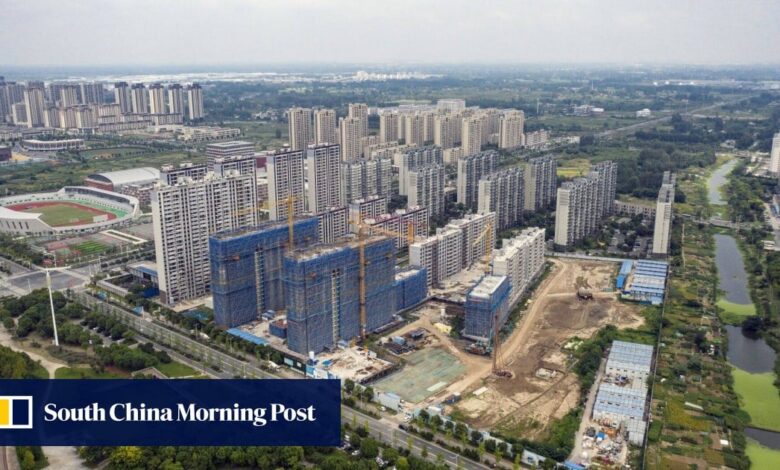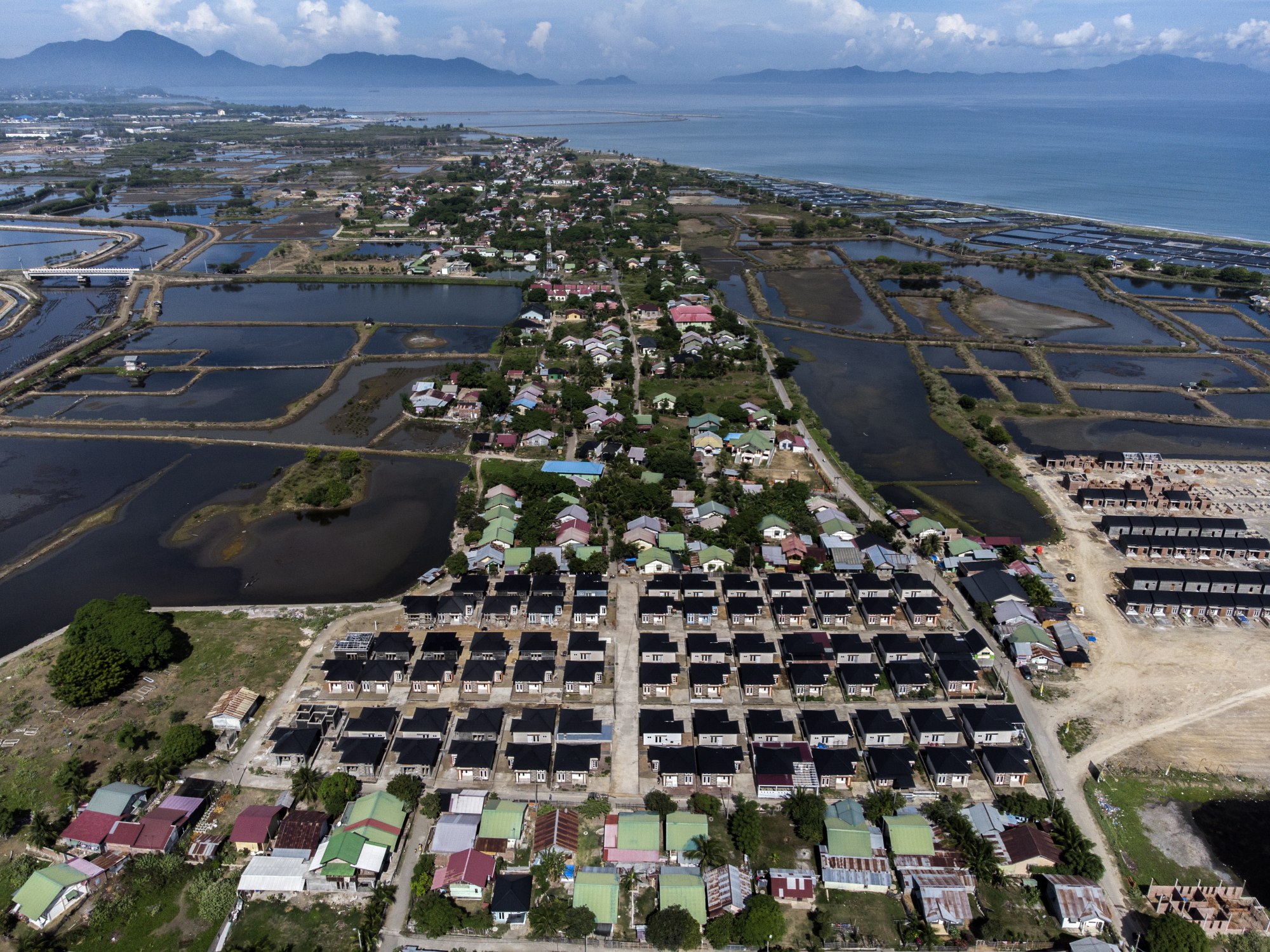China property crisis will need more than ‘simple policy’ solutions, say experts at Forbes conference in Singapore

[ad_1]
A “simple policy approach” will not fix China’s ongoing property turmoil as the market is suffering from a crisis of consumer confidence which will take a longer time to rectify, business leaders told a Singapore conference on Monday.
Bouts of policy easing such as lower interest rates would not boost the weak Chinese housing market instantly as it was no longer dented by a single problem of developer default, said Stephanie Lo, scion of leading Hong Kong property developer Shui On Group responsible for one of Shanghai’s trendy entertainment-retail developments, Xintiandi.
Lo, an executive director of Shui On Land and daughter of Shui On Group founder and billionaire Vincent Lo, told the Forbes Global CEO conference in Singapore on Monday the market would recover once economic growth as a whole returned to an upswing and employment figures lifted.

The forum in the island republic is the first of several high-profile business conferences being held ahead of this weekend’s Singapore Grand Prix, a mainstay of the annual motor racing calendar that has become a must-go networking event for the region’s business elite.
“[For] people to start to feel they have more confidence in jobs growth, in income growth, and therefore be more confident [about] deploying more of their savings into the property market, it will take some time,” Lo said during a panel discussion at the Forbes conference.
“While policy is very critical, I think it’s really important to look for future economic engines that will drive the economy. They’re investing a lot more into R&D, hi-tech … I think we’re seeing job growth in those areas. And for that to then trickle into the consumption spending, that will take a little bit of time.”
China’s housing market is struggling from an onslaught of property developer defaults – a problem that began when the country’s deleveraging campaign started in 2020 – and now, weak buyer demand.
According to Macquarie Research, new home sales in 30 major cities in August were 56 per cent of the figures in 2019, while new home starts this year could hit their lowest level since 2006.
More Chinese cities relax property curbs to revive largely frozen market
More Chinese cities relax property curbs to revive largely frozen market
Nevertheless, Lo was encouraged by the fast pace that Chinese stimuli were being injected into the economy to revive demand, signalling that authorities were aware of the magnitude of the property downturn.
Concerns about China’s economy and property sector dominated much of the opening session of the two-day conference.
Like Lo, Goodwin Gaw, chairman of Asian private equity juggernaut Gaw Capital Partners, said the end result for the Chinese property market was likely to be more consolidations of property firms.
“The state-owned banks will get paid, contractors will get paid, the homeowners will get their units delivered to them finished either by the developer or by a state-owned developer taking over and then the next stage will be banks-led government-pushed mergers and acquisitions,” Gaw said, speaking in the same panel discussion as Lo.
“That’s how these problems will be fixed. The last stage would probably be like the asset management companies [that existed] 15 to 18 years ago – where they would be set up to take the bad debt away until the market recovers. It will be systemic.”

Steady growth in Indonesia
However, the opposite is happening in Indonesia, according to Indonesian conglomerate Lippo Land executive chairman John Riady.
With economic growth exceeding 5 per cent for seven quarters, and inflation hovering at a global stand-out of about 3 per cent, liquidity has been abundant and real interest rates have gone down, Riady said.
“Obviously, the real estate industry globally is going through a little bit of a shake up, but in a place like Indonesia, we’re fortunate that things are actually a little bit different,” he said.
“This is a country where in many ways real estate is going through a secular cycle.”
Indonesia’s Jokowi touts legacy in swansong speech ‘justifying his presidency’
Indonesia’s Jokowi touts legacy in swansong speech ‘justifying his presidency’
A secular phenomenon refers to a trend which runs against a business cycle. In Indonesia, gross domestic product per capita is rising alongside housing affordability as banks lend their support to the real estate sector, Riady said.
Bank Indonesia is one of the few central banks in the world to refrain from rapid interest rate hikes, with inflation in the archipelago largely contained. Indonesia is on track to become the fourth-largest economy in the world by 2045.
“We’re seeing an immediate entering into a golden decade of homeownership,” Riady said.
“Year on year, even during Covid, most major real estate companies have recorded positive growth and sales. We’re seeing the same trend in hospitality and healthcare, and other forms of commercial real estate. The only part that I think is really struggling is in the office real estate space.”

Indonesian Finance Minister Sri Mulyani Indrawati, also a speaker at the Forbes conference, said Southeast Asia’s biggest economy had been able to achieve this because it had not relied solely on monetary policies but through addressing structural changes in the production supply chains.
Much of the inflation that has plagued economies globally after the pandemic was driven mainly by supply chain disruptions, that is, too few goods to meet revived demand.
Indonesia, for example, focused on building both physical and digital infrastructure to enable a faster distribution of goods and services, Sri Mulyani said.
[ad_2]
Source link




